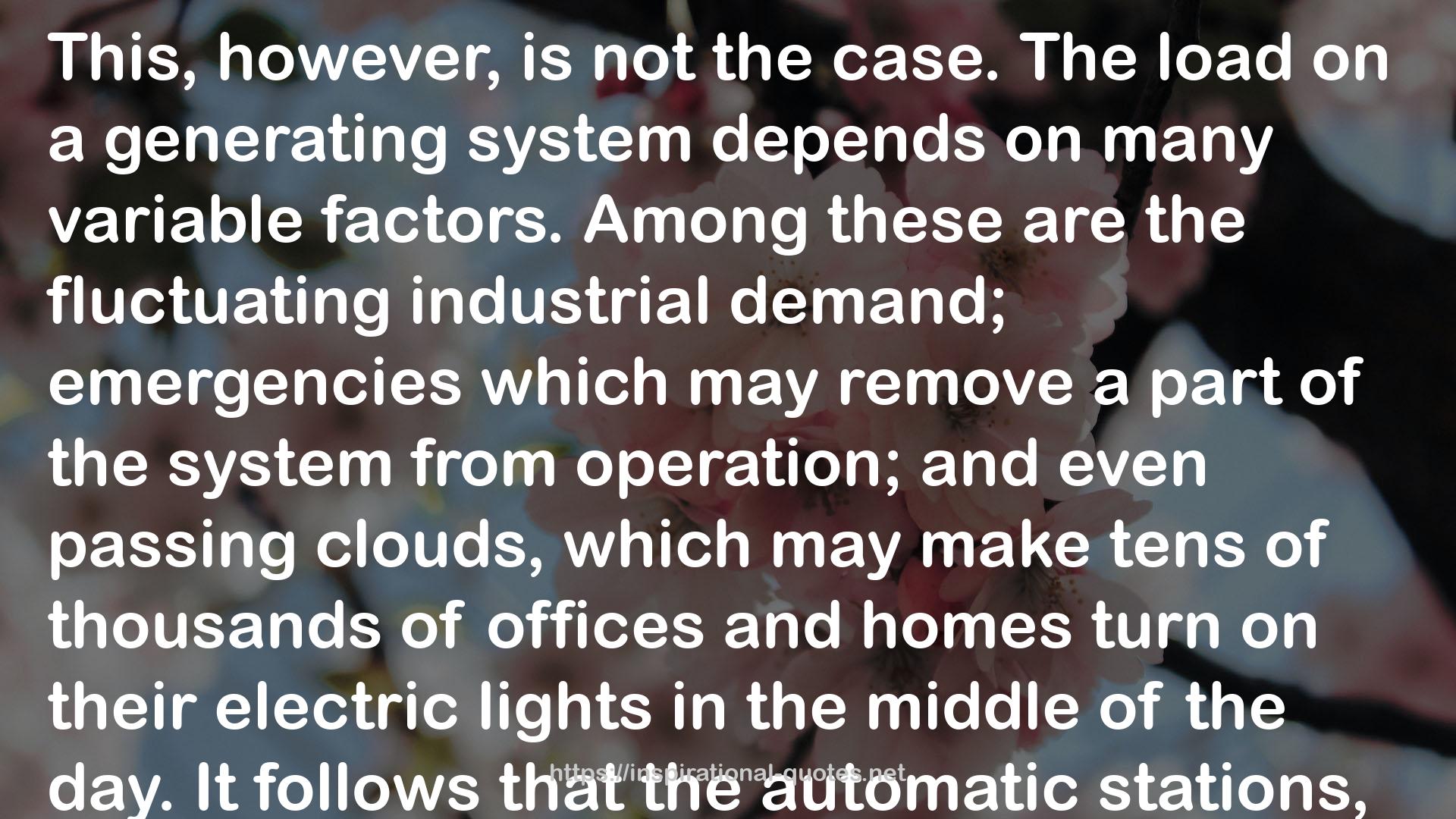" This, however, is not the case. The load on a generating system depends on many variable factors. Among these are the fluctuating industrial demand; emergencies which may remove a part of the system from operation; and even passing clouds, which may make tens of thousands of offices and homes turn on their electric lights in the middle of the day. It follows that the automatic stations, as well as those operated by a working crew, must be within constant reach of the load dispatcher, who must be able to give orders to his machines; and this he does by sending appropriately coded signals to the power station, either over a special line designed for the purpose, or over existing telegraph or telephone lines, or over a carrier system making use of the power lines themselves. On the other hand, before the load dispatcher can give his orders intelligently, he must be acquainted with the state of affairs at the generating station. In particular, he must know whether the orders he has given have been executed, or have been held up through some failure in the equipment. Thus the machines in the generating station must be able to send return messages to the load dispatcher. Here, then, is one instance of language emanating from man and directed toward the machine, and vice versa. "
― Norbert Wiener , The Human Use of Human Beings: Cybernetics and Society
